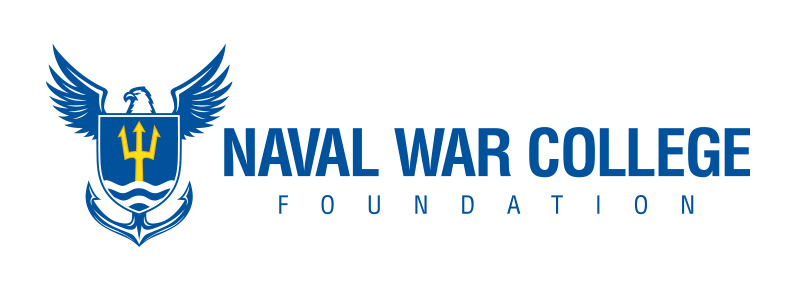June is a significant month in Naval War College presidential history. Three extraordinary NWC presidents either began or finished out their terms during this month. Since the founding of the College in 1884, selected presidents have been asked to lead and advance the mission of the NWC and develop the future leaders of the Nation’s military. Captain Alfred Thayer Mahan began his first term on June 22,1886. Admiral Edward C. Kalbfus began his first of two terms as president on June 18,1934, and finished his second term on June 30,1939, and Rear Admiral Joseph C. Strasser ended his term as PNWC on June 29,1995.
Captain Alfred Thayer Mahan took over as the Naval War College’s second PNWC on June 22, 1886. Mahan is well remembered for being chosen by Admiral Stephen Luce, the founder and first president of the NWC, to be the College’s first naval history and tactics instructor. His lectures were later published in “The Influence of Sea Power upon History,” a seminal account of naval history and tactics. Mahan was also chosen to serve a second NWC presidency six years later from 1892-1893.
Admiral Edward C. Kalbfus began his first of two terms as president of the Naval War College on June 18,1934. Kalbfus was a 1927 NWC graduate and two year staff member. His tenure is notable for his dedication and service to college especially during World War II, the production of the Naval War College of Sound Military Decision – the only published guide for naval planning at that time – and his love for Newport, for which he was honored with a main street in town being named for him. When Kalbus completed his time as the twenty-second PNWC, he was promoted to vice admiral in 1936 as Commander Battleships, Battle Force, and in 1938 to four stars as Commander Battle Force, United States Fleet.
Rear Admiral Joseph C. Strasser completed his term as the forty-sixth PNWC on June 29, 1995. Strasser was unique in that he served as PNWC for five years, longer than any other president. Under Strasser’s presidency, the New England Association of Schools and Colleges accredited the College, allowing it to award a Master’s degree in National Security and Strategic Studies.
As the Naval War College graduates another class of military and civilian leaders, we look to the example of these three presidents for their patriotism, dedication to service, and statesmanship. The mission of the College extends beyond the walls of the historic Newport campus, and Mahan, Kalfbus and Strasser serve as fine examples of a Naval War College education in practice.
